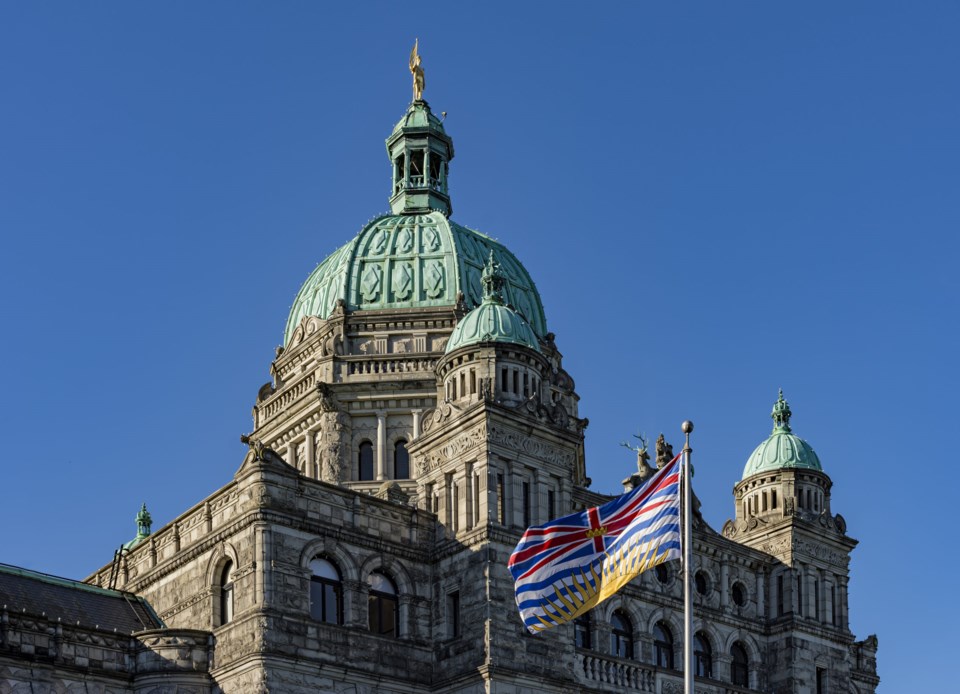Never let a good crisis go to waste.
You might think a global pandemic and its crushing toll on the economy would be the worst possible backdrop for the New Democrats’ first budget as a majority government in more than two decades.
Yet crisis is also an opportunity for change – and a $68-billion provincial budget with a $9.7-billion deficit could buy a lot of change.
And after more than a year of soul-crushing pandemic panic, public health measures, isolation and fear, I think many are more eager for something inspirational and aspirational; a vision that goes beyond surviving to thriving.
Yeah, the budget wasn’t that. For a spending plan with a record deficit, B.C. Budget 2021 was a somewhat cautious affair.
The government committed $3.25 billion this year and $1 billion next for the pandemic and recovery. Good.
That includes $900 million for pandemic health care costs; $265 million for housing and support for vulnerable populations; and $225 million for essential services like justice services, child care safety grants, food security and potential increased demand for income assistance. All good.
There’s $195 million for small- and medium-sized business recovery grants; $120 million for tourism and arts sector support; $100 million for the B.C. Recovery Benefit. Fine.
Not to mention $100 million for skills training and youth employment; and $100 million for community infrastructure programs, BC 150 community grants and CleanBC recovery investments. Okay.
But what’s the plan? What’s the vision? For B.C. beyond the 604, in particular, I’m not sure there is one.
The Strategic Plan released with Budget 2021 mentions rural and northern communities once, in the context of an unspecified amount of funding over the next 10 years “for projects to boost rural and northern communities over 10 years.”
The Rural Dividend Program was not revived, though. The $25-million program provided grants to rural communities of up to 25,000 people for infrastructure and economic development. The program was reallocated in 2019 to support laid off mill workers as the province’s forestry sector collapsed and apparently that was the end of it.
That’s not to say there isn’t spending important to regions outside Metro Vancouver.
There is $40 million allocated to bring high-speed internet and cellular coverage for more rural and remote communities, including Indigenous communities. That’s great because there is a promise to expand online services such as courts, education, business and health care that currently a fair number of rural and remote residents can’t access affordably whether they’re available or not.
There is a promise of another unspecified amount to address staffing needs for frontline RCMP officers in rural communities and $11 million for Forests, Lands, Natural Resource Operations and Rural Development regional offices for permitting land-based activities.
For the agriculture sector, there is $7 million to expand the development of “food hubs,” shared-use food and beverage processing facilities, and $10 million for boosting the Buy BC, Feed BC and Grow BC local purchasing programs, as well as $7.5 million for agritech innovation.
There is also specific spending towards reconciliation with B.C.’s Indigenous population, about a third of whom live in rural communities.
There will be an additional $60 million in annual funding to support Indigenous participation in land and resource activities, including negotiations and engagement on legislation, policy and programs, as well as $45 million to address racism in the health care and access to health services and $14 million for targeted mental health and addictions services, among other things.
Overall, Budget 2021 is serviceable but a hardly inspiring. I guess there’s always next year.
Dene Moore is an award-winning journalist and writer. A news editor and reporter for The Canadian Press news agency for 16 years, Moore is now a freelance journalist living in the South Cariboo. Moore’s two decades in daily journalism took her as far afield as Kandahar as a war correspondent and the Innu communities of Labrador. She has worked in newsrooms in Vancouver, Montreal, Regina, Saskatoon, St. John’s and Edmonton. She has been published in the Globe and Mail, Maclean’s magazine, the New York Times and the Toronto Star, among others. She is a Habs fan and believes this is the year.
SWIM ON:
- Dene Moore last wrote about nude Zoom photos, and that politicians deserve better treatment from the public...and each other.
- Maclean Kay was in the provincial virtual budget lockup. He hopes it's the last.
- Russell Hixson: Even in a pandemic, the Port of Prince Rupert has kept humming.



